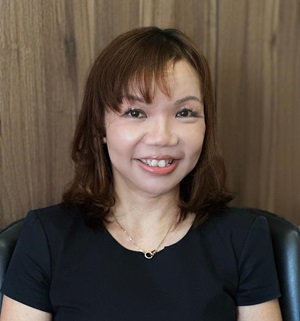Beyond the stereotypes: How women can succeed in the tech industry
- Josephine Tan

In the fast-paced world of technology, where innovation and disruption define the industry, women continue to face significant barriers to leadership. Jasie Fon, Regional Vice-President of Asia for Ping Identity, is no stranger to these challenges. With over 30 years of experience in the tech industry, spanning roles at IBM, Microsoft, and Workday, Fon has risen to become a leader in cybersecurity.
But her journey to the top has not been without its struggles, particularly as a woman in a male-dominated field. Now, she is using her platform to advocate for greater gender diversity and inclusion, while sharing her insights on how women can overcome the challenges they face in the tech industry.
One of the most pervasive issues women in tech encounter is imposter syndrome, the nagging feeling that their success is undeserved. Fon explained that imposter syndrome goes beyond self-doubt, and told HRM Asia, “It’s an emotion, a fear that we don’t deserve the success or the position we’re given.” This feeling, she noted, is particularly prevalent among women in tech, where leadership roles are still dominated by men. “Sometimes we say success is just luck, but we don’t recognise that it’s actually due to our achievements, which is very sad,” Fon reflected. For women, particularly those brought up in cultures that emphasise humility, this mindset can be hard to shake.
Fon cited a KPMG survey that found 75% of women executives in the US have experienced imposter syndrome at some point in their careers. This statistic is a reminder of how widespread the issue is, especially in industries like technology, where women often feel outnumbered. Fon believes that overcoming this challenge is crucial for women to thrive in their careers.
“You should talk to people,” she advised. “When you share your vulnerability, you’ll find that many people are like you. Drawing strength from other women who need your support can be a powerful way to overcome self-doubt.”
To tackle imposter syndrome, Fon advocates for building confidence by acknowledging one’s strengths and accomplishments. “As women, we need to know ourselves and recognise that our success is attributed to our capabilities, not luck,” she said. She encouraged women to create a list of their attributes and achievements, which can serve as a reminder during moments of doubt. “When people say you’re doing a good job, focus on what aspect of the work was really attributed to you—these are facts, not emotions,” she explained. This practice helps women internalise their success and reinforces their sense of accomplishment.

“When people say you’re doing a good job, focus on what aspect of the work was really attributed to you—these are facts, not emotions.” – Jasie Fon, Regional Vice-President, Asia, Ping Identity
In addition to self-reflection, Fon highlighted the importance of finding mentors and allies who can provide guidance and encouragement. Having a strong support network is crucial, especially when dealing with challenges or receiving critical feedback. “You need people who will cheer you on,” she emphasised. “Mentors, peers, and allies can help remind you of your strengths and achievements, which is important when you’re doubting yourself.” By surrounding themselves with supportive individuals, women can gain the confidence needed to navigate the complexities of their careers.
READ MORE: Maintaining organisational agility in the face of disruption
Fon also stressed the importance of celebrating success—something that is often overlooked, especially in cultures where humility is valued. “We don’t celebrate enough,” she observed. “We’re brought up to be humble, but it’s important to acknowledge our achievements gracefully.” By celebrating success, women can internalise their accomplishments and build confidence. “The more you acknowledge your achievements, the more you’ll internalise them, and that will help build your confidence over time,” she added.
Start with STEM and seek mentorship
Beyond addressing imposter syndrome, Fon is committed to helping the next generation of women enter the tech industry. She believes that early exposure to STEM—science, technology, engineering, and mathematics—is crucial for young women considering a career in tech. “STEM is a very important career path for young women,” she explained. “Recognising the value of STEM early on can open up many opportunities.”
Her involvement in the Singapore Computer Society (SCS) Women in Tech Chapter has allowed her to mentor undergraduates pursuing careers in technology. She sees mentorship as a vital part of helping young women navigate the tech landscape, and elaborated, “Young women should look for mentorship beyond their peers. When they eventually enter the workforce, they will need to interact with multiple generations. It’s important to be aware of the vast opportunities in tech and to seek out mentorship programmes that align with their interests.”
As a mother of two, Fon has also had to balance the demands of family life with her leadership roles in major tech organisations. Her journey from working at global tech giants to running her own business and now leading a region at Ping Identity shows that it is possible to succeed in tech while maintaining a work-life balance. “If I can do it—someone who is, for example, a Singaporean Chinese woman from a humble beginning and now working on a global stage—anybody else can do it,” she concluded.
For more news and analysis on the latest HR and workforce trends in Asia, subscribe to HRM Asia and be part of the region’s largest HR community!






